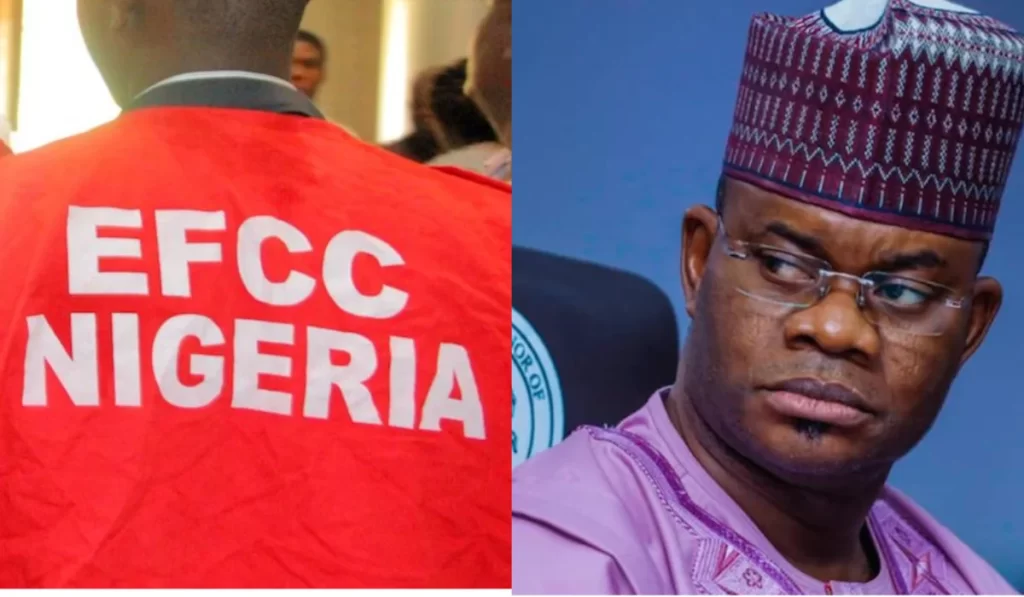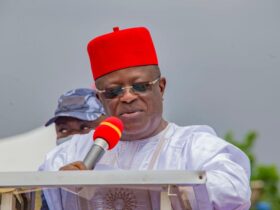
In a surprising turn of events, the Economic and Financial Crimes Commission (EFCC) has withdrawn its appeal against an order restraining the agency from arresting Yahaya Bello, former governor of Kogi State. The commission, in a notice filed on April 22, cited that the appeal was filed out of time and events have overtaken it.
“The appellant herein intends to and do hereby wholly withdraw her appeal against the respondent in the above-mentioned appeal,” stated J.S Okutepa, SAN, counsel for the EFCC.
The withdrawal came after the Kogi High Court’s decision on April 17, 2024, which granted an order restraining the EFCC “from continuing to harass, threaten to arrest or detain Bello,” according to the presiding judge, Isa Jamil Abdullahi.
Mr. Bello had filed a fundamental rights enforcement suit on Feb 8, alleging politically motivated harassment by the EFCC. The court granted an interim injunction on Feb 9, restraining the EFCC from further harassment pending the substantive motion’s hearing.
READ ALSO: USIP: Northern Governors Travel to US to Discuss Insecurity
Despite the court’s order, the EFCC filed an appeal on March 12, arguing that it couldn’t be restrained from carrying out its statutory responsibilities. However, the Kogi High Court’s judgement on April 17 reinforced the injunction against the EFCC, with the judge directing the commission to file charges against Mr. Bello if necessary.
This withdrawal coincides with the recent attempt by EFCC operatives to arrest Mr. Bello at his Abuja residence, following a warrant issued by the Federal High Court in Abuja. The commission is seeking to arraign Mr. Bello on charges including money laundering, breach of trust, and misappropriation of funds amounting to N80.2 billion.
However, at the scheduled arraignment on April 18, Mr. Bello was absent. Abdulwahab Mohammed, his counsel, argued that the court lacked jurisdiction to issue the warrant, referring to the February 9 injunction by the Kogi High Court and the pending appeal by the EFCC.
The withdrawal of the appeal raises questions about the EFCC’s approach to prosecuting Mr. Bello and the implications for ongoing investigations.









Leave a Reply